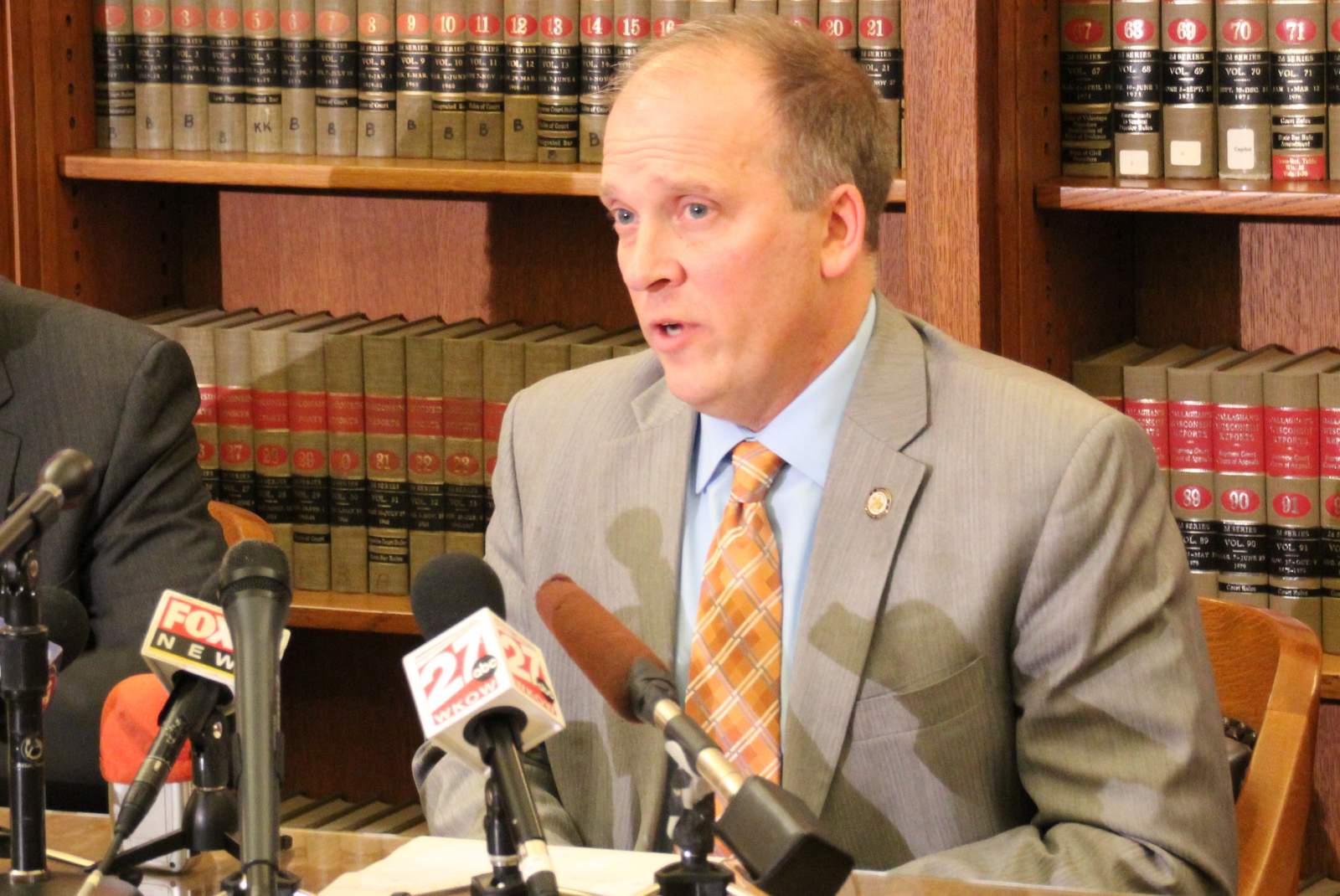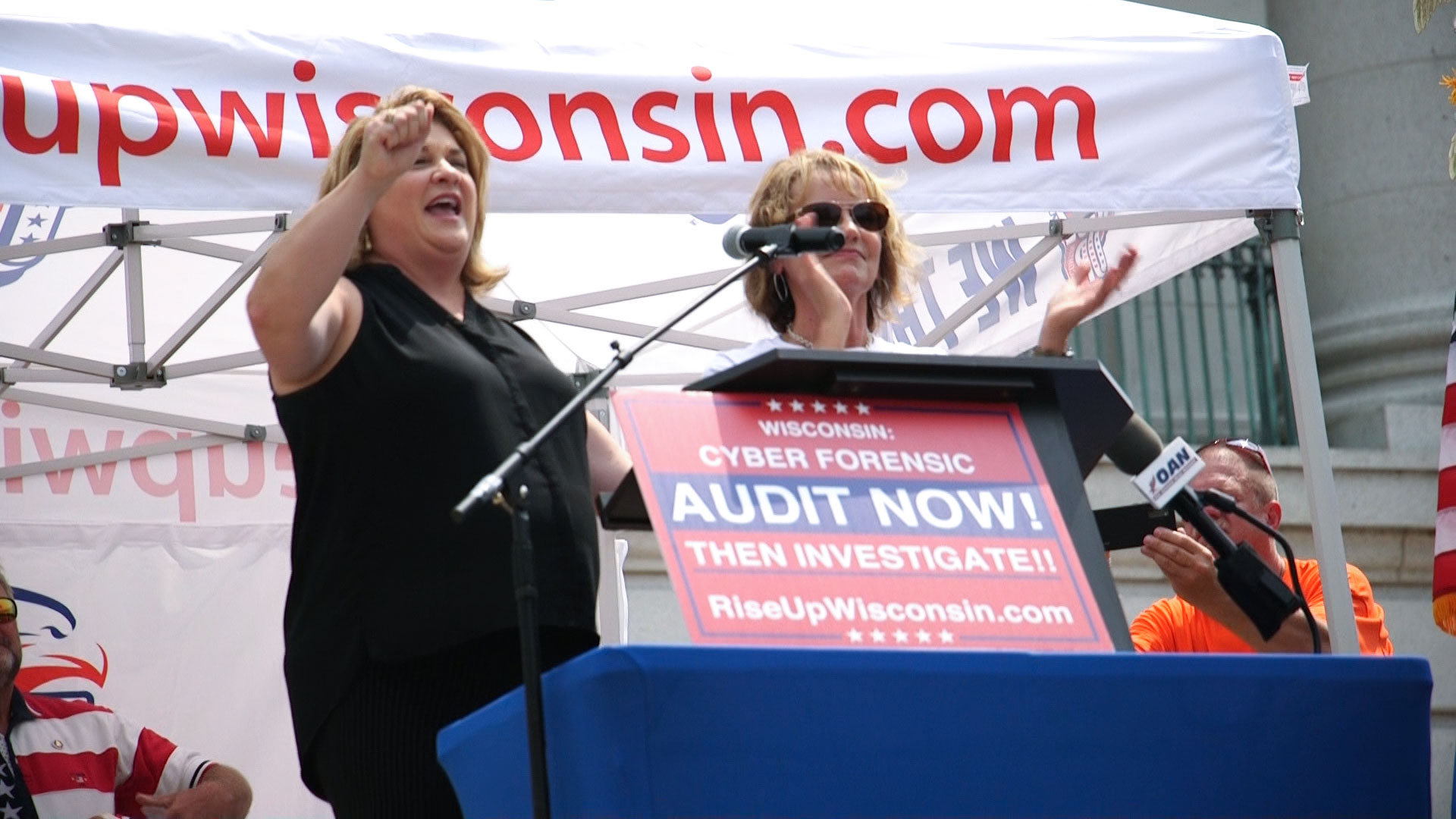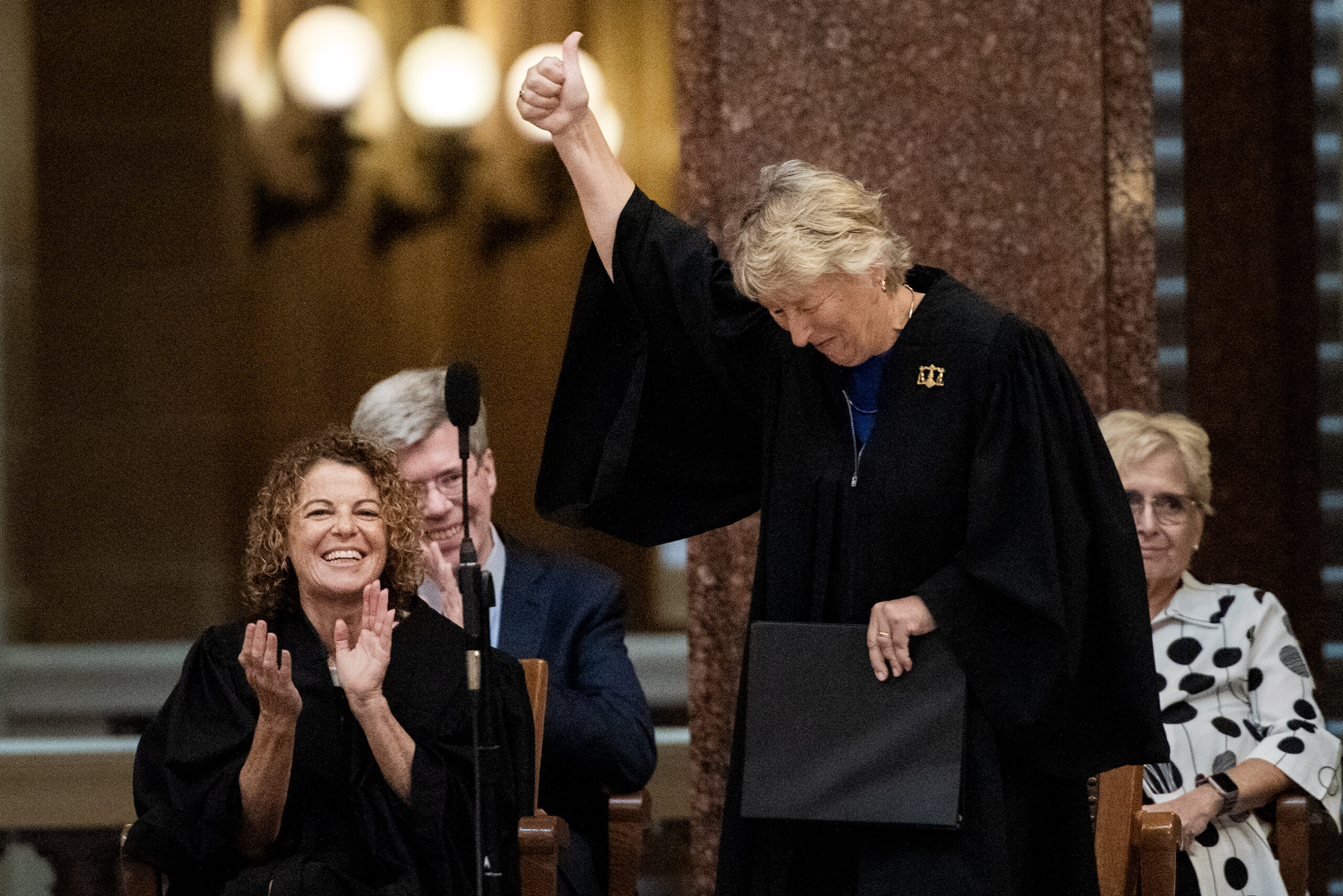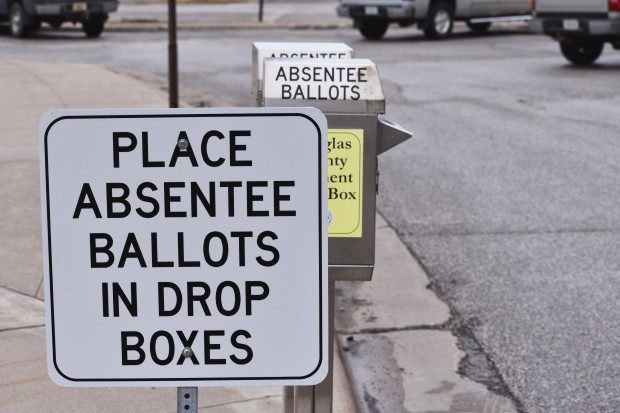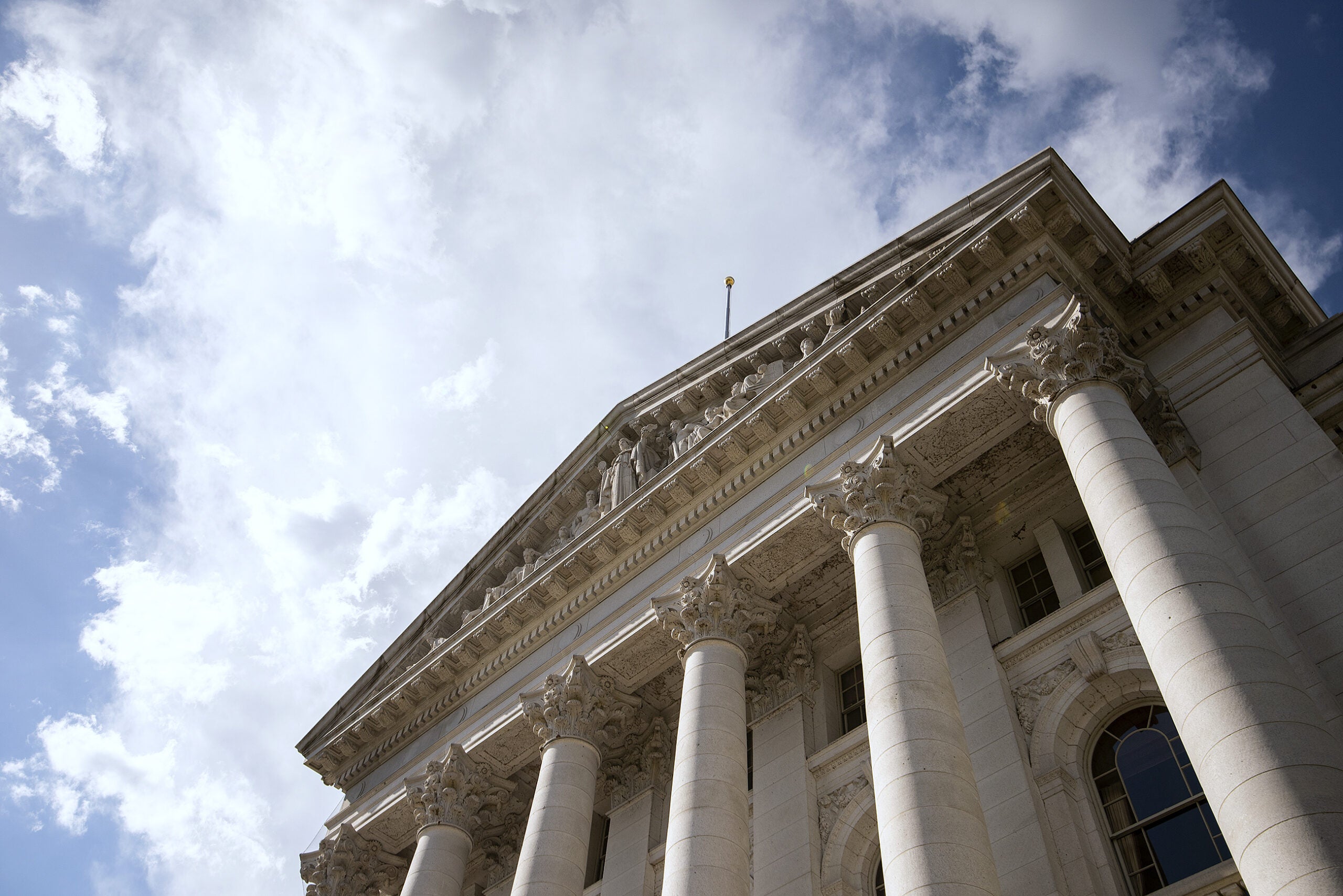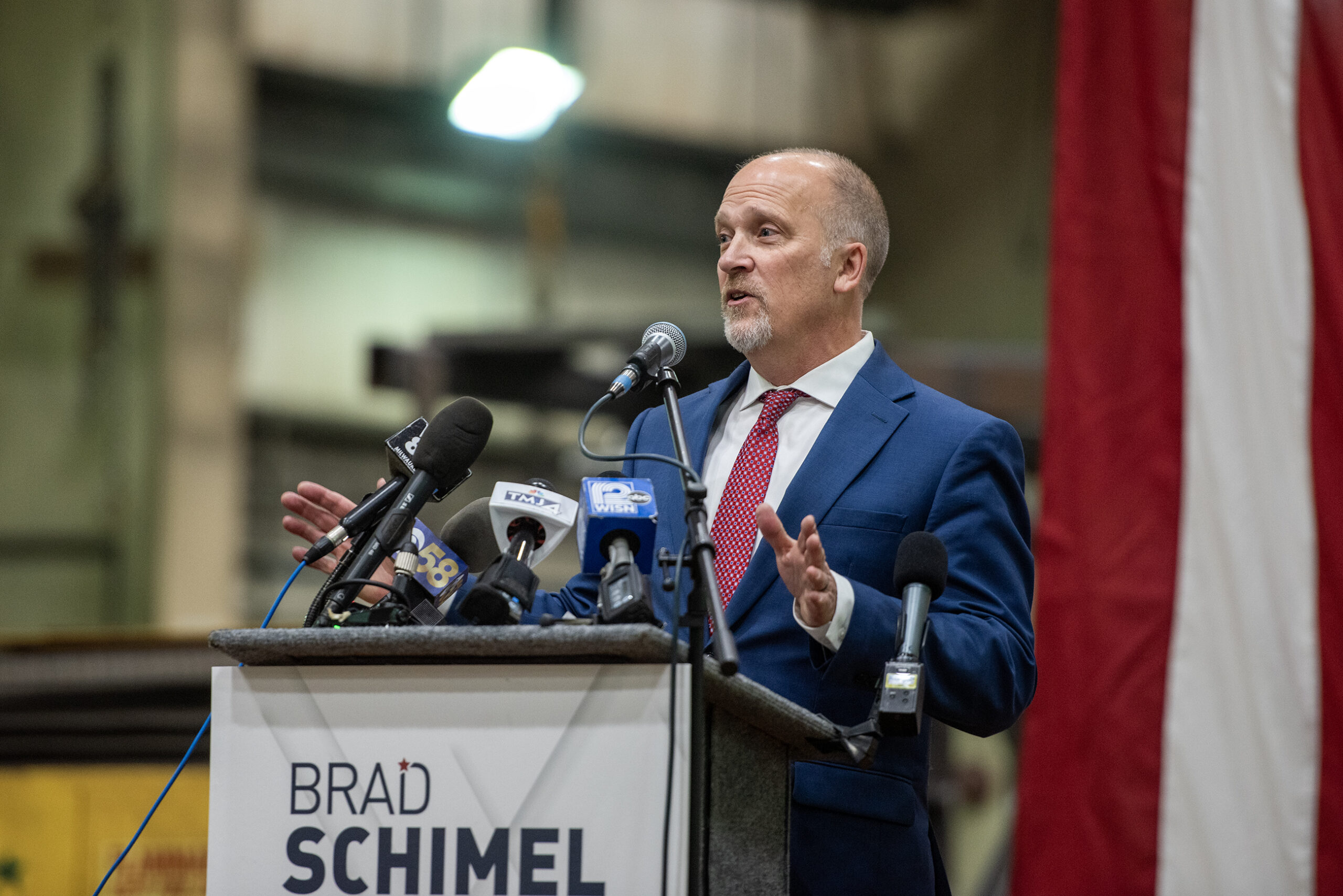The conservative majority on the Wisconsin Supreme Court has sided with Republican Attorney General Brad Schimel in an open records dispute, ruling the state has a right to keep training videos Schimel made as a prosecutor shielded from the public.
The ruling overturned two lower court decisions that would have forced Schimel to make the tapes public under Wisconsin’s open records law.
Schimel produced the videos in 2009 and 2013 when he was Waukesha County district attorney. The Wisconsin Democratic Party asked for the tapes in 2014 under the state’s open records law when Schimel was running for attorney general.
Stay informed on the latest news
Sign up for WPR’s email newsletter.
In one of the videos, Schimel describes law enforcement techniques for catching sexual predators. In the other, he discusses a high profile “sextortion” case involving high school students. Both presentations were recorded at conferences for Wisconsin state prosecutors.
Writing for the court’s 5-2 majority, Supreme Court Justice Rebecca Bradley said the public interest in preventing the release of the videos outweighed the general presumption in Wisconsin that government records should be disclosed.
“Wisconsin and this court are firmly committed to open and transparent government,” Bradley wrote. “The denial of public access occurs only in exceptional cases. This case presents one of those exceptional situations.”
Bradley wrote releasing the videos would give the public insight into Schimel’s charging decisions and force children who were part of the sexploitation investigation to relive the ordeal.
“It would undoubtedly re-traumatize and harm the victims who were minors at the time of these crimes,” Bradley wrote, “and its disclosure would send a strong message to crime victims that the continued pain that sometimes accompanies the pursuit of justice does not end – even when a prosecution is complete and the case is closed.”
In a dissenting opinion, Justice Shirley Abrahamson wrote the court’s majority had cast a “long shadow” on Wisconsin’s public records law.
“The majority opinion eclipses the ‘Sunshine Law,’” Abrahamson wrote. “It dims the lights on persons seeking information about Wisconsin government operations and – in the instant case – shuts the lights off on two records that show how district attorneys, charged with prosecuting all criminal actions within their prosecutorial units, fulfill their duties.”
Abrahamson wrote the state Department of Justice had not provided enough evidence to support keeping the videos private and instead had relied on “speculation, conjecture, and fear” in its arguments.
“The question for me is: What has the majority achieved with its opinion grounded in speculative, abstract, and unsubstantiated fears” Abrahamson wrote. “The answer for me is: A dimming of the light on public oversight of government, especially in matters pertaining to criminal justice.”
Schimel issued a statement praising the ruling, saying as a career prosecutor, he had experienced firsthand the tension between protecting sensitive information and promoting transparency.
“Even though I would have benefited politically from the release of these law enforcement training tapes, I believe the court made the right decision in this case, to protect victims and guard the confidentiality of prosecutorial techniques,” Schimel said.
The Wisconsin Democratic Party, which sought the release of the tapes, criticized the ruling.
“We’re disappointed to see that the Wisconsin Supreme Court, bought and paid for by right-wing dark money groups, has once again stepped in to prevent Republican leaders from being held accountable,” said Wisconsin Democratic Party Spokesman Brandon Weathersby.
Wisconsin Freedom of Information Council President Bill Lueders said it is disappointing any time a court rules against the release of public records, but he did not think this decision could be broadly applied to future cases.
“It was a very fact-specific analysis that the court applied,” Lueders said. “In this case it was persuaded that there was a good reason to withhold these records. In another case, it might not.”
Lueders said he was most disappointed that part of Bradley’s analysis denied the release of these videos because Democrats had a partisan intent in requesting them.
“It’s not a factor that should be taken into account,” Lueders said. “You’re not supposed to consider the motives of a requester.”
While the videos sought in this case will remain private, they placed Schimel in an uncomfortable situation. As attorney general, Schimel has pushed for government transparency and authored Wisconsin’s Open Meetings Law Compliance Guide. A lawyer for the Democratic Party read from that document during oral arguments earlier this year as he urged justices to order the release of these videos.
Editor’s Note: This story has been updated with original reporting from WPR.
Wisconsin Public Radio, © Copyright 2024, Board of Regents of the University of Wisconsin System and Wisconsin Educational Communications Board.

